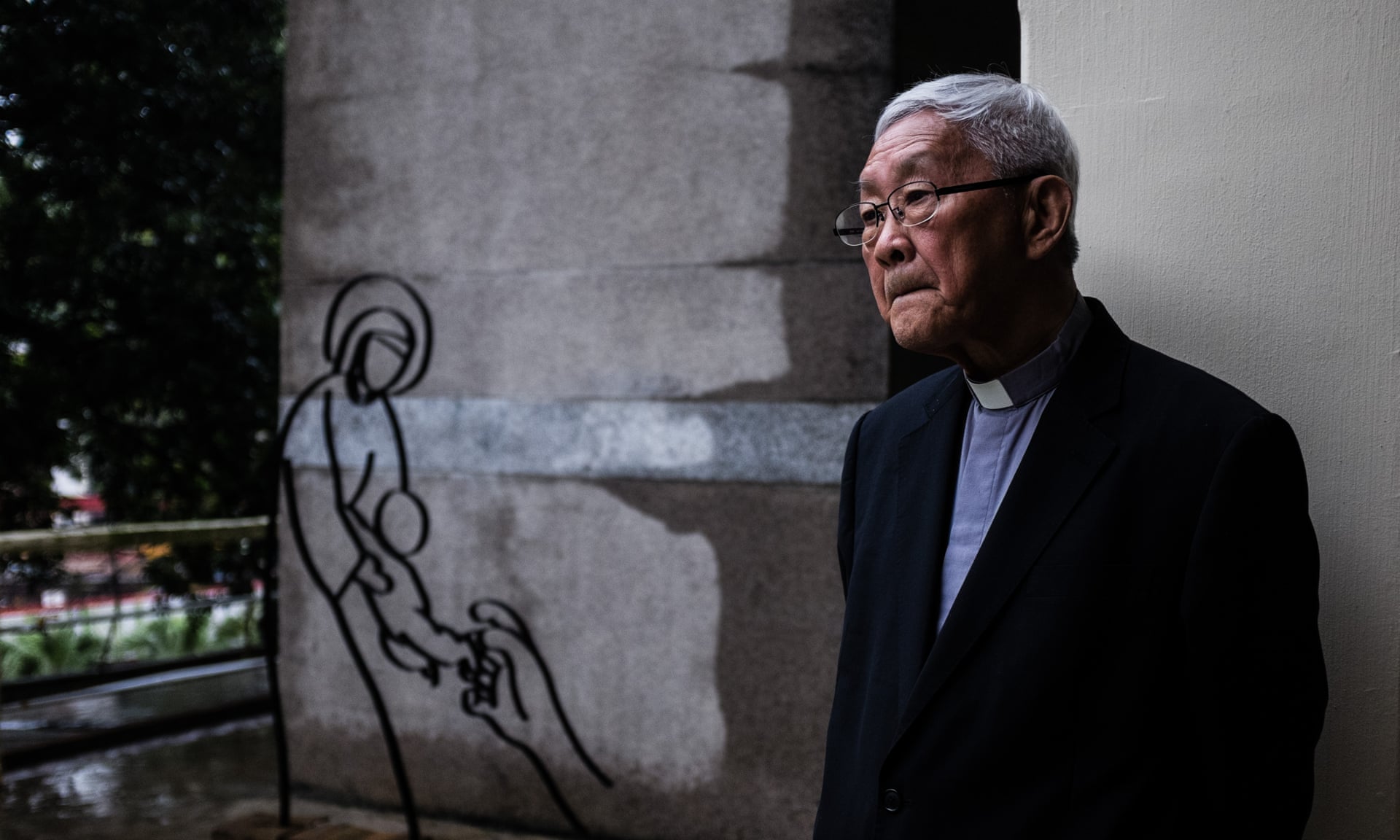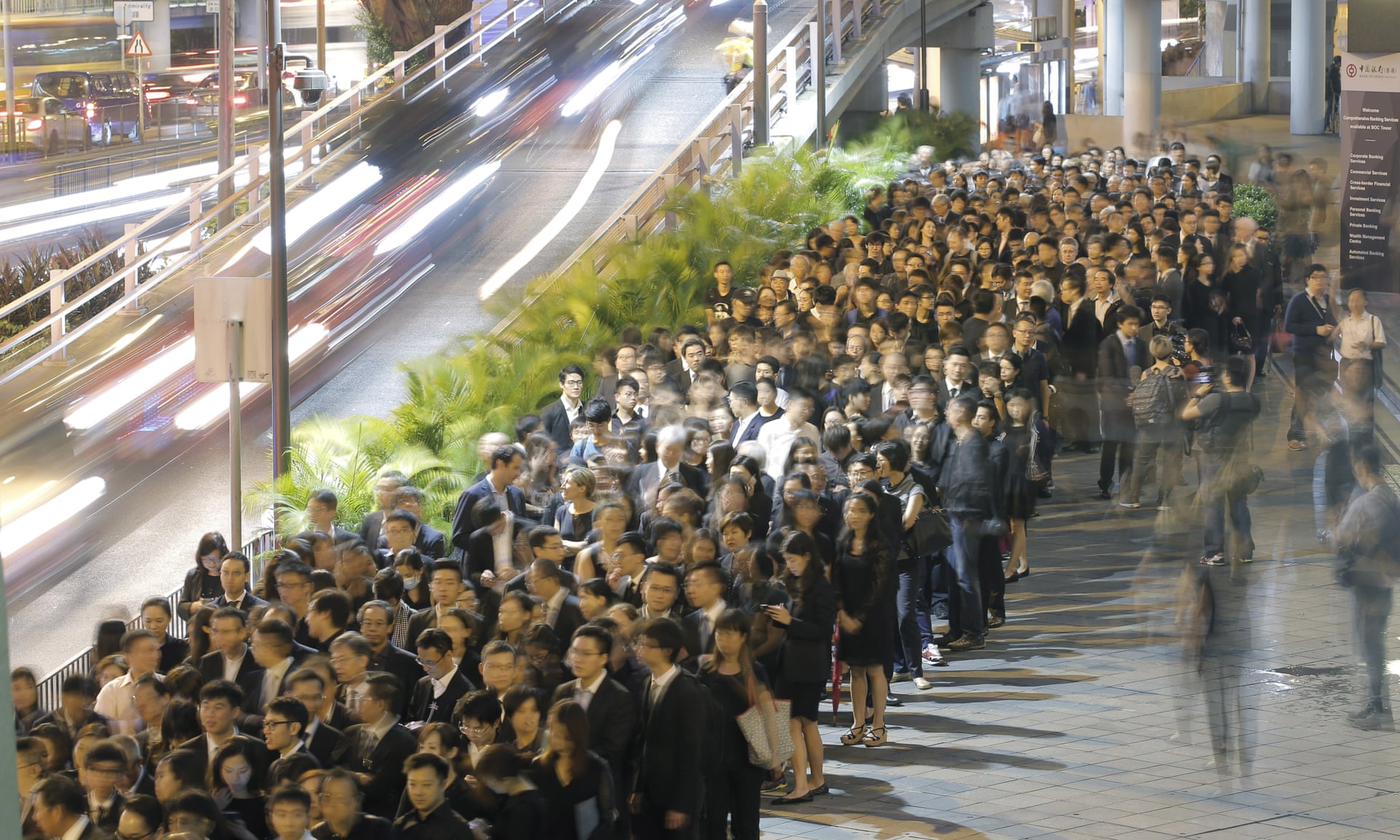By DAVID FEITH

Hong Kong -- Cardinal Joseph Zen, the most senior Chinese cleric in the Catholic Church, believes the Vatican is fast approaching a tragic mistake in China.
Within days church leaders could conclude a landmark agreement with the Chinese government after 65 years of acrimony and persecution. Pope Francis isn’t known to have signed off, and before he does Cardinal Zen prays to be heard.
The former bishop of Hong Kong speaks with passion that belies his age (84) and recent hospitalization for a lung virus.

Cardinal Zen in St Peter's Square, March 6, 2013.
Hong Kong -- Cardinal Joseph Zen, the most senior Chinese cleric in the Catholic Church, believes the Vatican is fast approaching a tragic mistake in China.
Within days church leaders could conclude a landmark agreement with the Chinese government after 65 years of acrimony and persecution. Pope Francis isn’t known to have signed off, and before he does Cardinal Zen prays to be heard.
The former bishop of Hong Kong speaks with passion that belies his age (84) and recent hospitalization for a lung virus.
As we meet at the church complex where he has lived since 2009—and where he first moved as a novice from Shanghai in 1948—he warns of “surrender”: that Chinese leaders are demanding it and Vatican officials appear willing to give it “in the hopes of achieving an agreement.”
Proponents say the deal would help millions of “underground” Catholics and open the world’s most populous country for evangelization.
Proponents say the deal would help millions of “underground” Catholics and open the world’s most populous country for evangelization.
Cardinal Zen says it would sacrifice church principles, abandon the faithful, undermine evangelization and invite further repression.
The deal concerns who gets to select Catholic bishops in China—as vital a power as there is.
The deal concerns who gets to select Catholic bishops in China—as vital a power as there is.
Beijing has claimed it since the 1950s, when Mao Zedong banished Vatican officials and established the state-run Chinese Catholic Patriotic Association in their place.
That organ now oversees the “official church” of some 70 bishops and five million adherents who answer to Beijing and toe its line.
The underground church, by contrast, follows the pope, for which its 30 bishops and estimated seven million adherents face harassment, imprisonment and worse.
To promote unity the Vatican has lately accepted most Beijing-backed bishops.
To promote unity the Vatican has lately accepted most Beijing-backed bishops.
But it has always held that the state-run Patriotic Association is “incompatible with Catholic doctrine,” as Pope Benedict XVI wrote in 2007, adding: “The authority of the Pope to appoint bishops is given to the church by its founder Jesus Christ. It is not the property of the Pope, neither can the Pope give it to others.”
Yet now the Vatican seems willing to give it to Beijing, which is what Cardinal Zen calls “absolutely unacceptable.”
Yet now the Vatican seems willing to give it to Beijing, which is what Cardinal Zen calls “absolutely unacceptable.”
Rome would commit to recognize as bishops only those clerics who first win nomination from the Patriotic Association’s bishops conference.
This would make the church “totally subservient to an atheist government,” says Cardinal Zen, and may require the Vatican to cut ties to the true church underground.
Though he says state-backed bishops are generally “wonderful men” and “very faithful to the church,” Cardinal Zen laments that all are nonetheless “slaves” and “puppets.”
Though he says state-backed bishops are generally “wonderful men” and “very faithful to the church,” Cardinal Zen laments that all are nonetheless “slaves” and “puppets.”
Only someone ignorant of communism, he says, could think the nominations the government sends to Rome wouldn’t be coerced.
Having taught in Chinese seminaries from 1989 to 1996, he recalls that state bishops couldn’t meet or even place international calls without government bosses present.
Cardinal Zen slams Vatican diplomats who say that embracing the Patriotic Association is needed to preserve the church’s hierarchy and sacraments.
Cardinal Zen slams Vatican diplomats who say that embracing the Patriotic Association is needed to preserve the church’s hierarchy and sacraments.
“I would prefer no bishops,” he says.
“With fake bishops you are destroying the church.”
That’s what nearly happened in Hungary and other Soviet satellites in the 1970s after Rome embraced an Ostpolitik (“Eastern Policy”) of cooperation with Communist authorities.
That’s what nearly happened in Hungary and other Soviet satellites in the 1970s after Rome embraced an Ostpolitik (“Eastern Policy”) of cooperation with Communist authorities.
“The Churches in those countries have not been saved through the Vatican diplomacy,” he wrote recently, “but thanks to the unswerving faith of the simple faithful!”
He believes the same would happen in China if the Vatican refused to bow to Beijing.
He believes the same would happen in China if the Vatican refused to bow to Beijing.
“The underground church is evangelizing very well,” he notes, even as authorities have destroyed 1,000 church crosses since 2013 and kept underground bishop James Su Zhimin in secret detention for two decades.
“Also in the official church there are so many good people. . . . They are not afraid. Why should you surrender?”
“Pope Francis has no real knowledge of communism,” the cardinal laments.
“Pope Francis has no real knowledge of communism,” the cardinal laments.
He blames Francis’ experience in Argentina, where military dictators and rich elites did evil while accused communists suffered trying to help the downtrodden.
“So the Holy Father knew the persecuted communists, not the communist persecutors. He knew the communists killed by the government, not the communist governments who killed thousands and hundreds of thousands of people.” (In China it was tens of millions.)
“I’m sorry to say that in his goodwill he has done many things which are simply ridiculous,” the cardinal says of the pope.
“I’m sorry to say that in his goodwill he has done many things which are simply ridiculous,” the cardinal says of the pope.
These include his approaches to both China and Cuba, the other communist state he has courted at the apparent expense of human rights.
But still he’s the pope, so even if he signs a bad deal Cardinal Zen says he won’t protest once it’s done.
His message to the faithful in that case: You’re never obligated to act against conscience.
His message to the faithful in that case: You’re never obligated to act against conscience.
“You are not bound to join the Patriotic Association. You can pray at home if you lose your churches.”
An underground priest who loses his flock can go home and till the soil.
“You’re still a priest anyway,” he says.
“So wait for better times. But don’t rebel against the pope.”


 A Chinese diplomat, who made international news headlines in 2005 when he defected to Australia, has ended a decade of silence to warn about an alleged increase in Chinese espionage operations against his adopted country.
A Chinese diplomat, who made international news headlines in 2005 when he defected to Australia, has ended a decade of silence to warn about an alleged increase in Chinese espionage operations against his adopted country.


